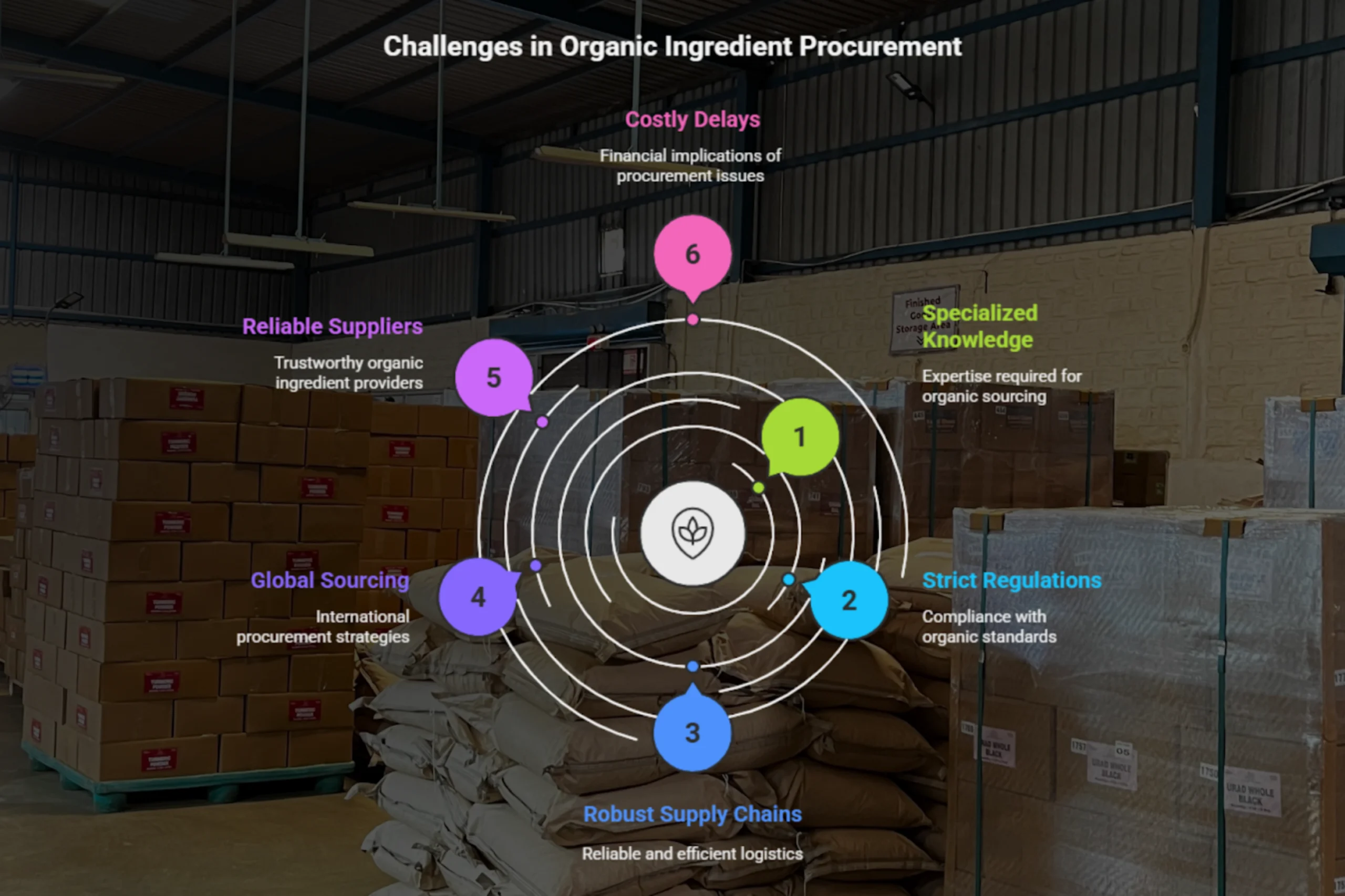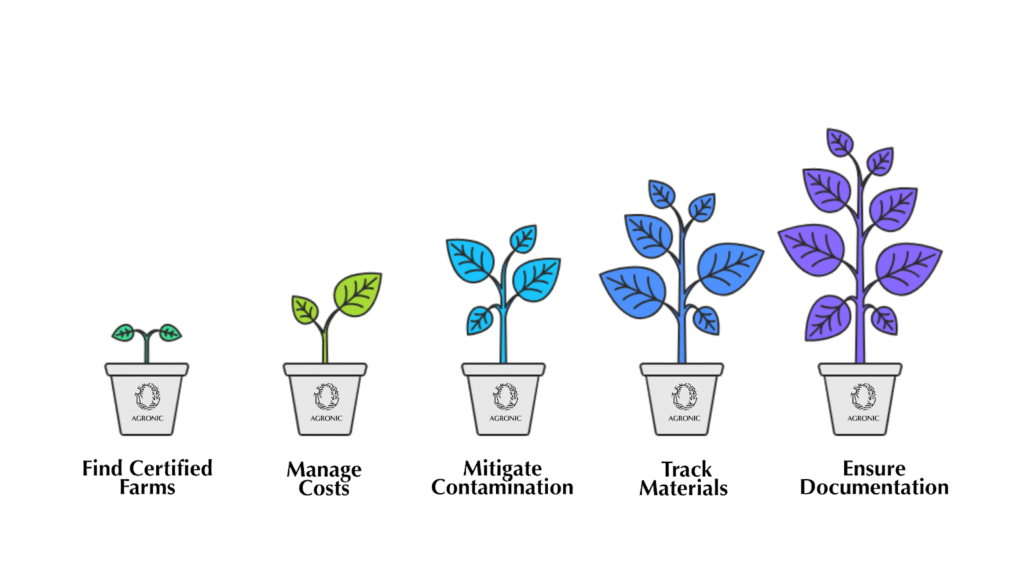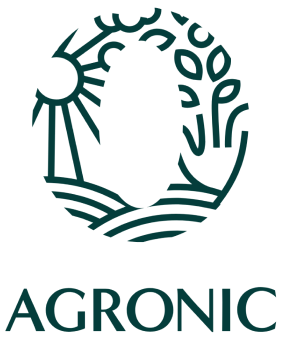Organic Ingredients Export: Real Challenges for Procurement Teams

Procuring organic ingredients is more challenging than sourcing regular products. The organic export process requires specialized knowledge, strict regulations, and robust supply chains. Many organic suppliers struggle with these demands.
Procurement managers who source organic ingredients globally through organic business-to-business (B2B) channels face unique challenges. Understanding these challenges helps you find reliable organic suppliers and avoid costly delays.
From Farm to Your Warehouse: The Organic Export Process
Getting Certified Organic Materials
Finding certified organic ingredients creates immediate problems for organic suppliers:
Few certified organic farms exist. Many regions lack a proper organic farming setup. This forces organic manufacturers to work with small, scattered suppliers.
Organic materials cost more. Organic certification requires farmers to invest in special practices and training. This drives up organic wholesale pricing.
Contamination risks are real. Wind drift from nearby conventional farms can ruin organic quality. Shared water sources and equipment also create problems.
At Agronic Food, we work directly with certified organic farms across multiple regions. Our tracking systems follow each batch from the farm to processing. This ensures a steady supply and proper documentation.

Certification and Papers
Multiple groups control organic export standards:
USDA organic, EU organic, NPOP, and JAS standards overlap but differ in key ways. Organic suppliers must handle all these requirements at once.
Regular audits happen often. Organic compliance monitoring never stops. Missing documents during audits can stop entire shipments.
Each country wants different papers. Import rules change frequently. Organic certification procedures need constant updates.
We hold certifications for multiple regions. Our quality team keeps audit-ready documents and tracks rule changes across all target markets.
Quality Checks and Testing
Organic ingredients face strict organic testing requirements:
Residue limits are very low. Organic products often have zero-tolerance rules. Standard tests may miss trace contamination that organic standards ban.
Heavy metal testing needs special equipment. Many regions lack proper organic testing labs.
Testing delays hurt organic shipping schedules. Limited lab capacity creates bottlenecks during busy seasons for organic bulk orders.
We use only approved labs for batch testing. Every shipment includes full test reports covering all required checks.
Shipping and Storage
Organic products need special handling during transport:
Cold storage requirements for sensitive organic ingredients need special containers and monitoring.
Preventing contamination requires organic-only shipments or thorough container cleaning.
Port delays can damage product quality. Organic products may spoil faster than regular alternatives during long storage.
Our packaging protects products throughout transport. We use fumigation-free shipping and dedicated organic shipments when needed.
Import Rules and Market Entry
Each importing country has unique organic standards:
Rules change often as governments update organic policies. Staying current requires dedicated monitoring.
Import approval takes months. Many countries require pre-approval for organic ingredient imports.
Document requirements vary by country and product type. Wrong or missing papers can get shipments rejected.
Our international experience covers multiple markets and regulatory systems. We guide clients through import protocols and stay current with rule changes.
Pricing and Cost Control
Organic ingredients cost more, while buyers want competitive prices:
Certification costs add overhead. Testing, audits, and compliance systems require big investments.
Supply chain premiums build up at each stage. Organic farming, processing, and shipping all cost more than conventional alternatives.
Market pressure from buyers who expect competitive pricing despite higher compliance costs creates margin pressure.
Our bulk buying efficiency and direct sourcing model help control costs. We maintain competitive pricing through smart sourcing and operational efficiency.
Steady Supply Challenges
Organic supply chains face unique consistency problems:
Seasonal changes affect organic crops more than conventional ones. Organic farming often produces lower yields with more variation.
Weather sensitivity impacts organic farms more. Organic farmers have fewer tools to manage weather-related crop stress.
Smaller farm sizes mean individual supplier failures have a bigger impact on total supply.
Our year-round supply planning includes backup inventory and diverse sourcing locations. We work with multiple suppliers to ensure steady availability.
Building Trust with International Buyers
Long-distance business relationships need extra transparency:
Communication gaps can create confusion about product specs or delivery schedules.
Supply chain transparency demands detailed documentation and tracking systems that many suppliers cannot provide.
Quality consistency must be maintained across multiple shipments to build long-term partnerships.
Our client portal provides real-time access to shipment tracking, quality documents, and supply chain data. Dedicated export managers ensure consistent communication and service quality.
Why Organic Export Experience Matters
The organic export process requires special knowledge beyond regular trade practices. Successful organic exports demand a deep understanding of regulatory requirements, supply chain management, and quality assurance protocols.
Companies trying organic exports without proper experience face big risks. These include shipment rejections, regulatory penalties, and damaged business relationships.
Work with Proven Organic Export Specialists
Agronic Food combines deep organic industry knowledge with strong export capabilities. Our approach addresses each challenge in the organic export process through proven systems and experienced personnel.
Ready to discuss your organic ingredient requirements? Contact our team to explore how our specialized capabilities can support your sourcing objectives. We provide detailed capability assessments and customized solutions for complex organic ingredient requirements.
Please schedule a consultation with our organic export specialists to evaluate partnership opportunities for your specific market requirements.

